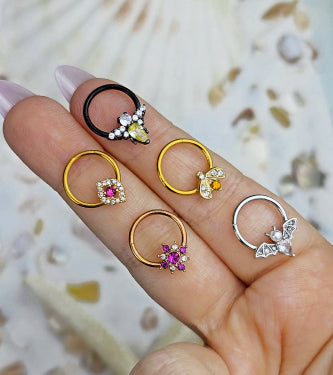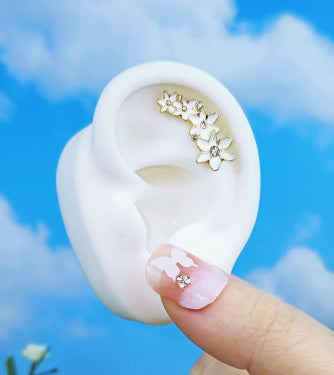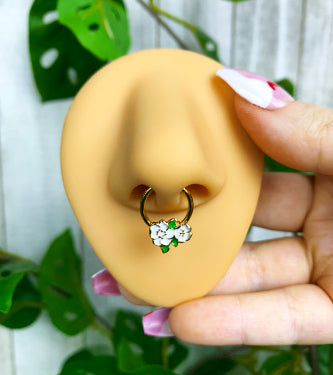Plugs, sometimes mistakenly called gauges, have been worn by many diverse ethnic groups throughout history, primarily throughout African and South Pacific regions. With globalization throughout the world, the customs of these people have traveled to the West and now this type of body piercing throughout North America and Europe is more popular than ever! For those of you who don’t know, plugs/gauges are worn primarily in the ears after the initial piercing has healed and has then been stretched larger. Occasionally plugs are worn in other piercings such as the nose, labret or cartilage, but the earlobes are the most common area to be stretched. Plugs have become increasingly popular in recent years. Because of their popularity, people are constantly seeking out different styles and materials in order to keep showing their individuality.
There are several styles of plugs available on the market today including saddle plugs, straight plugs, screw plugs, tunnels, spirals, and tapers among others. Saddle plugs are slightly larger on either end so that they don’t slip out of the stretched piercings. Straight plugs are just what their name sounds like—an even diameter all the way across. Rubber “O-rings” are stretched over the ends to keep the plugs in place. Screw plugs have a cap on one end that unscrews so that the plug can be slid through the ear and then the cap is replaced to hold the plug in the piercing. Tunnel plugs (flesh tunnels) can be any of the aforementioned styles but they have a hollow hole through the middle so that you can see all the way through the piercing. Spiral plugs are just what they sound like, spiraled up material (usually wood, bone, metal, glass or stone) where the outer edge of the spiral is inserted into the piercing and then twisted through the hole until the spiral is firmly attached. Tapers are often used for stretching the holes larger because they are thinner on one end and fatter on the other. There are also “Cheater” or “Faker” plugs which are actually the thickness of a normal earring but appear to be much bigger gauges. Cheater plugs are available in all of the above styles except for tunnels.
Plugs are also made of many different types of materials. The most common plugs throughout history were made of wood, bone, horn, bamboo, stone, shells, amber or other fossils - all natural materials. These materials are still available in many new shapes, colors, textures and designs. Other materials have become popular as well, such as surgical and anodized steel, gold, glass or Pyrex, acrylic including certain types of resin, silicone and other plastic materials.
Plugs and gauges can be a really interesting way to express your personality, just make sure that you consult with your piercer before stretching any piercing. Safety first!



